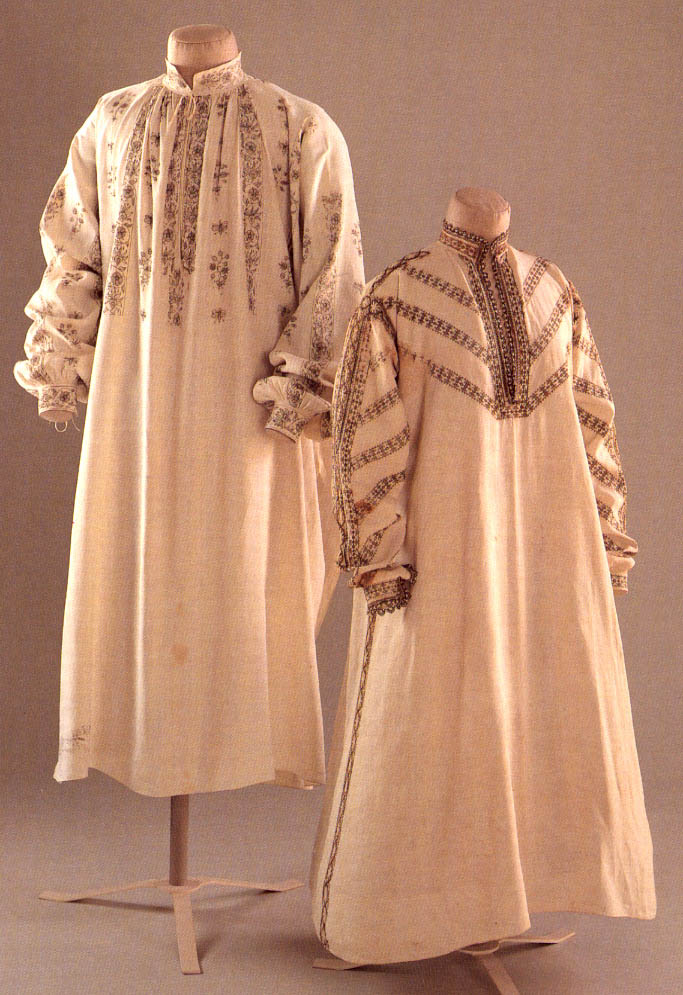Chemise
| This article may require cleanup. The specific problem is: Some information is copied directly from an external site. Relevant discussion may be found on the talk page. Please help improve this article if you can. (February 2024) |
A Chemise, also called a smock, is a simple garment worn close to the skin to protect clothing from sweat and body oils. It's a unisex garment, worn by all genders under their outer layer of clothing.
In history
Women's underdresses begin as loose-fitting shirts or chemises, probably cut simply to a T-tunic shape.
13th century versions of the chemise had undersleeves that scoop out of the external sleeves to envelope the hands, most commonly worn by wealthy women. This serves a double purpose: to emphasize the class distinction from those who labor with their hands, and to protect costly embroidered sleeve cuffs from grease and grime. Clean, bleached linen cuffs could be easily replaced by the wealthy, recycled into lesser uses.
By the 14th century, people began wearing an under-cotehardie beneath the visible cotehardie, so the undergarment became more highly fitted so as to not produce unsightly wrinkles in the form of the tight cotehardie. This garment is not necessarily the innermost layer; instead, they might have been wearing a shirt of fine cloth, covered by a smoothing under-cotehardie, and finally an outer garment.
By the end of the 14th century, there was evidence of an underdress made of fine or sheer cloth peeking out of the bustlines and sleeves. In some cases, the underdress is almost sheer.
Making a chemise
To properly protect the outer garments, most chemises were made from linen. The chemise of a person of wealth was often decorated with embroidery around the neckline and cuffs, sometimes in blackwork. The chemise of poorer people were usually very simple and close to the body, while wealthier individuals would have undergarments that billowed out.
Links
- Instructions on making an Elizabethian chemise
- Tutorial, based on a 15th century Italian chemise
- Reproduction of a Italian Camicia by Signora Onorata Katerina da Brescia, an SCAdian

